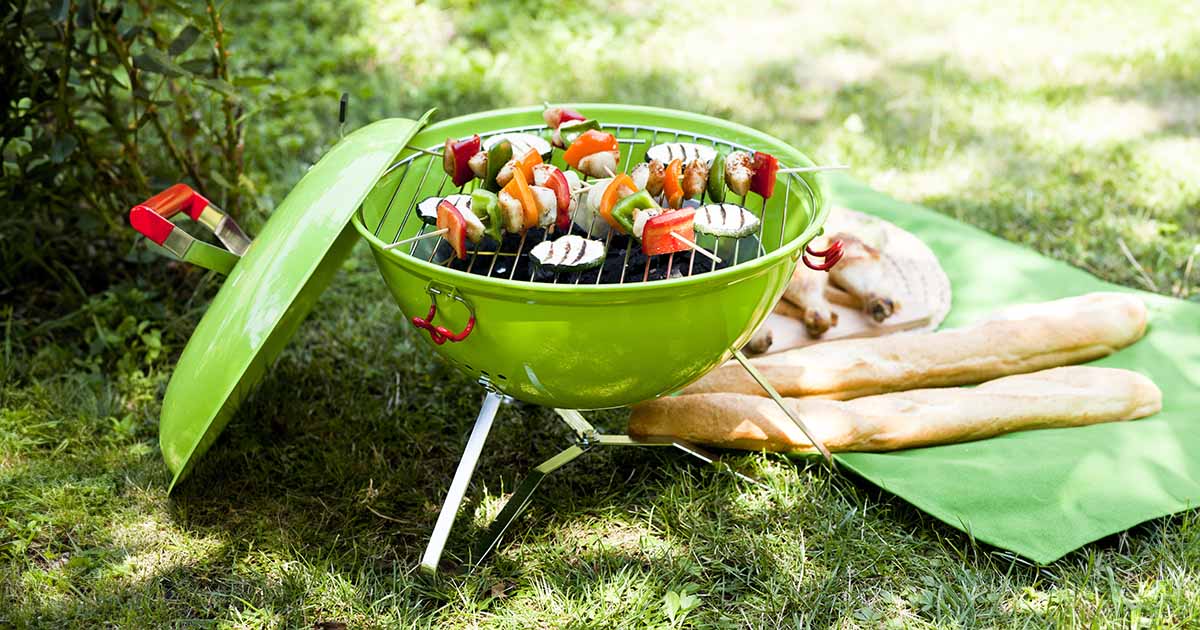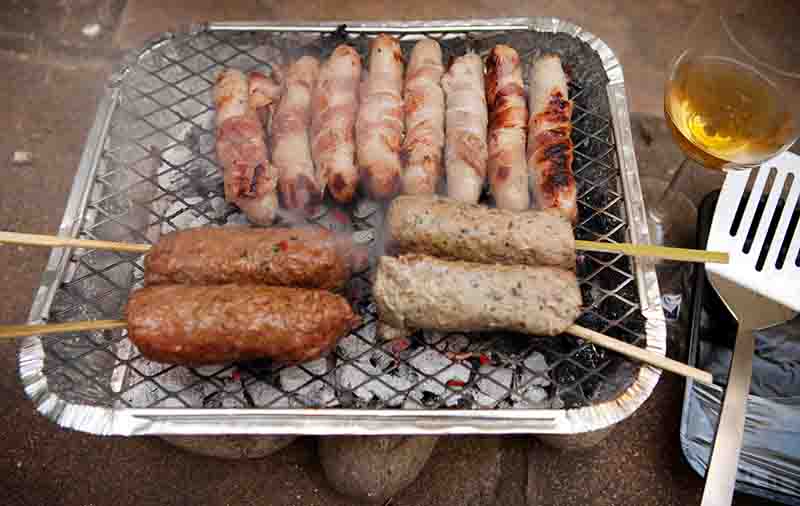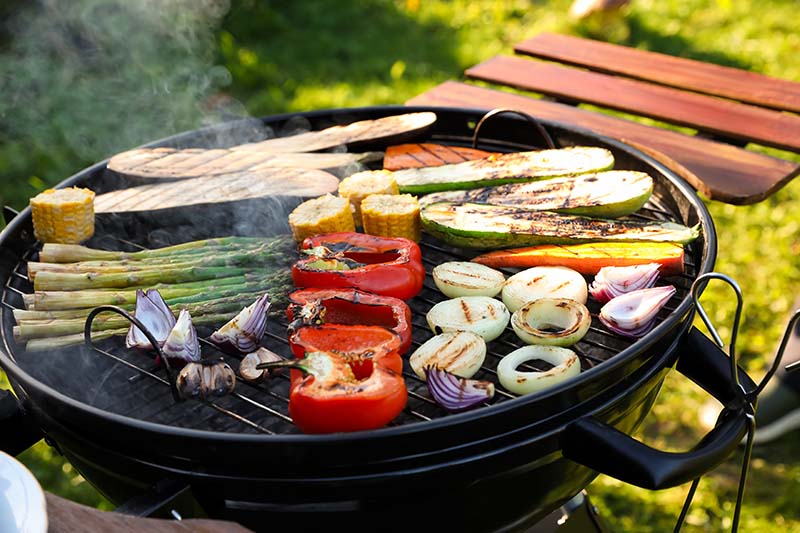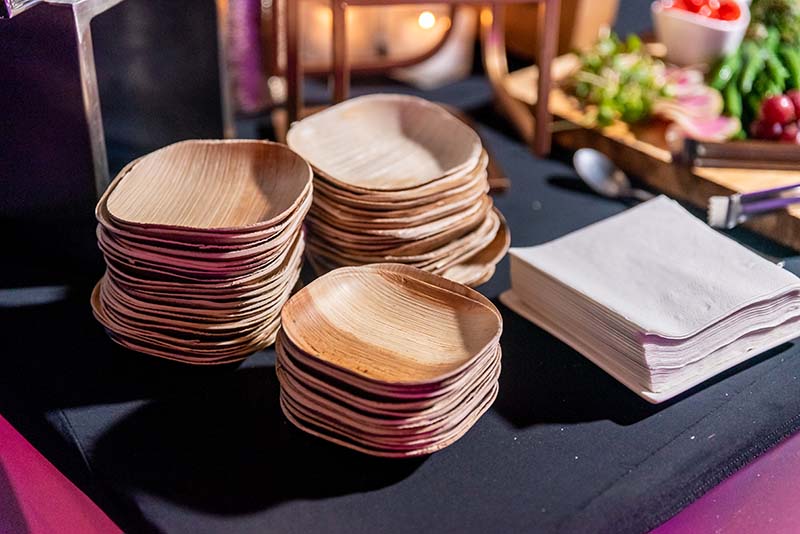Sizzling Sustainably: How to Have a More Eco-Friendly BBQ This Summer

There’s one thing we Brits love to do as soon as the sun makes an appearance – and that’s firing up the BBQ! Nothing beats an afternoon spent with family, friends, and good homemade BBQ grub. But what impact do our back garden banquets have on the environment? And are there any more sustainable alternatives we could consider?
The Hidden Carbon Footprint of Your Beloved Barbeque
How much CO2 do BBQs produce?
Researchers from the University of Manchester and the Institute for Sustainable Food at the University of Sheffield found that a typical summer barbecue for four people can release the same amount of CO2 as an 80-mile car journey. That’s almost the distance between Manchester and Birmingham!
Are disposable BBQs bad for the environment?

In short – yes. As convenient as they may be – disposal, single-use BBQs are a serious headache for the planet. Aside from contributing to fly-tipping when not properly disposed of, they're also made from non-recyclable materials such as treated charcoal and plastic film packaging. This means that even when they are disposed of, they cannot be recycled, so they tend to end up in a landfill.
Are charcoal grills a more sustainable BBQ alternative?
Although aesthetically pleasing with their more traditional look, charcoal grills are actually really harmful for the environment, releasing a wide range of pollutants including carbon monoxide (CO), carbon dioxide (CO2), nitrogen oxides (NOx) and trace metals.
Charcoal BBQs have been found to have negative impacts on air quality in many urban areas across the UK, with one London-based study finding spikes in fine particulate matter (PM2.5 and PM10) on days with high barbecuing activity.
What type of BBQ is best for the environment?
Electric and gas BBQs are much better choices than disposable and charcoal options when it comes to the planet. Electric BBQs powered by renewable energy produce no direct emissions, while gas grills, although relying on fossil fuels, produce far less CO2 emissions than their charcoal counterparts.
How else can I make my summer BBQs more sustainable?
Ditch the beef

One of the most substantial contributors to a BBQ's environmental impact is the food itself. Beef burgers - one of the most common meat options – have an extremely high carbon footprint, with 4 medium-sized patties releasing approximately 16.84 kg of CO2e (carbon dioxide equivalent). That’s the equivalent amount of emissions as it takes to heat a typical UK home for 1.5 to 2 days.
A meatless BBQ is by far the best option for reducing your impact on the planet, but if you’re determined to have meat on the menu, a better option would be chicken or ethically sourced game.
Avoid plastic packaging
Supermarket meats and cheeses often come in plastic or polystyrene packaging, which is extremely difficult to recycle. This sadly means that a lot of these materials end up in landfills, contributing to plastic pollution and ultimately damaging the environment.
Instead, pop to your local butchers or zero-waste shop to source the ingredients for your next BBQ. You’ll often find that these items are higher quality, locally sourced and less processed too!
Eco-Friendly Firelighters
As convenient as they may be to get hold of, the firelighters you can pick up from your local supermarket or petrol station aren’t the best option when it comes to sustainability. These firelighters often contain petroleum-based products like paraffin wax and harmful chemicals like kerosene. Instead, try to opt for carbon-neutral, natural options made from FSC-certified wood.
Keep a Lid On It!
It sounds so simple, but closing the lid of your BBQ is a great way to help retain heat, speeding up the grilling process and reducing overall fuel consumption. So, as tempting as it may be to keep checking on your prized sizzling sausages, every few minutes may be a bit too often!
Banish Disposable Plates

We get it – as good as 'reusable' plastic plates and cutlery sound, when you’ve got a party of 10 or more people to cater for (and clean up after!), they’re not always the most ideal solution.
A happy medium here is plain paper plates and wooden cutlery, rather than plastic. While these often can’t be easily recycled if contaminated with food waste, they’ll have a less significant impact on the environment than their plastic alternatives. Otherwise, more sustainable and eco-friendly alternatives include compostable plates made from palm leaf or bamboo.
Considerate Clean Up
Last on the list is the dreaded post-BBQ clean-up. There are so many heavy-duty cleaning products on the market that promise to cut through the grease and leave your BBQ sparkling clean. While they’re often effective, many of these products contain harsh chemicals such as lye (sodium hydroxide), phosphoric acid, and strong solvents like glycol ethers. When rinsed away, these chemicals can enter waterways, posing serious threats to aquatic life and disrupting delicate ecosystems.
A great alternative to harsh BBQ cleaners is a homemade paste made of baking soda and vinegar. Simply apply the paste to your appliance, let it sit for 20-30 minutes (or overnight for very stubborn grime), then scrub with a stiff brush and rinse thoroughly.
Sustainable BBQ Tips: That’s a Wrap!
The last thing we want to do is take the fun out of summer BBQs, but by making a few thoughtful adjustments, you may enjoy your next one more, knowing you’ve tried to reduce its impact on the planet! We hope these tips have been helpful, and happy barbequing!

